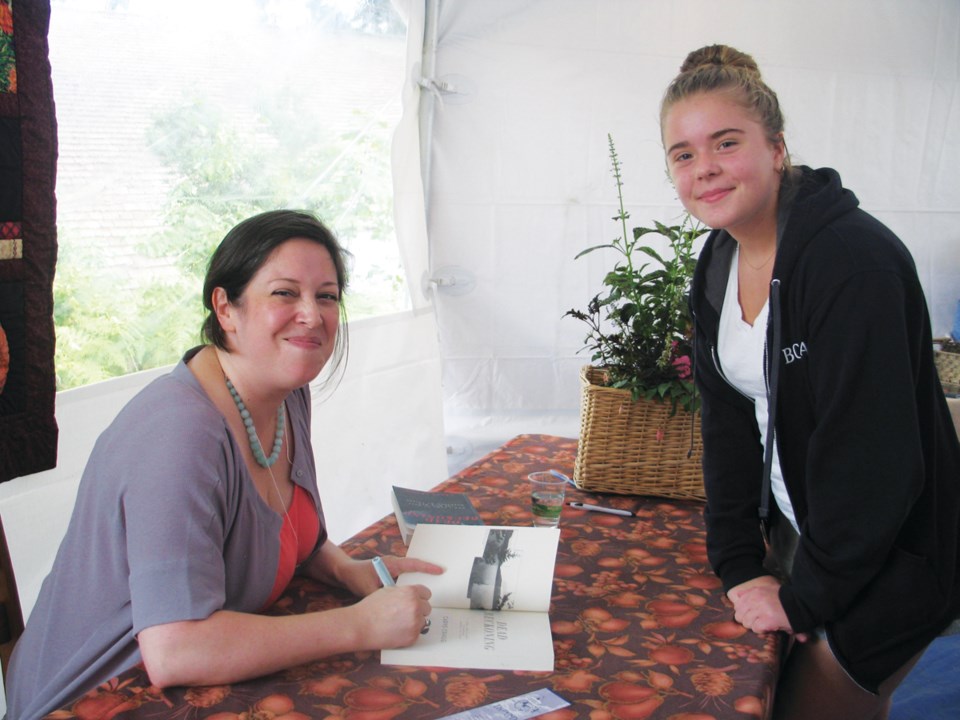Journalist Deborah Campbell was the speaker at the annual Bruce Hutchison lecture, a crowd-drawing event at the Festival of the Written Arts that took place in Sechelt, Aug. 16 to 19. The audience that filled the 400-plus seats at the Rockwood pavilion on Saturday night was attentive to her subject, that of democracy and journalism.
At question time, several expressed shock and growing concern, since what Campbell was describing was not about far away events involving Russia and Trump, but about us – about how we are being isolated from real life by our social media, how we are enjoying that hit of dopamine we get when someone “likes” our post, and how we are staying engaged for the benefit of the corporate major media players who sell ads and private information gleaned from our every click. Each post on Facebook or Twitter may or may not tell the true side of the story – very often we are getting uninformed opinion. Campbell said that asking a question of Google or finding a video clip on You Tube might spit out only the top ten most viral stories, giving a skewed answer.
She cited an interesting study of the town of Guelph in Ontario that lost its local newspaper to cutbacks and subsequently lost honesty as well. No one was checking up on city hall, the school board and community organizations. With no journalists to write informed articles, the uninformed information was disseminated through social media with no moderator.
“It was toxic online,” she said. “We are making a dystopia.” And where did all the laid-off journalists go? On to other professions or working part-time, presumably at better pay, since, as Campbell pointed out, the money for lengthy, investigative, top-notch journalism was not forthcoming. There is hope, however, she said, citing alternative search engines, such as Startpage and DuckDuckGo, that maintain privacy and don’t adhere to a corporate agenda.
This weighty theme was only one of many explored by Festival speakers. Ausma Zehanat Khan is a Muslim, who was born in Saskatchewan, lived in Toronto and is now an American citizen.
“So much of the world has trouble fitting into its boundaries,” she pointed out. “There are so many migrants and identity is complicated.” In her novels, her two detectives in multi-cultural Toronto are called on to unravel crimes of large issues: war crimes, terrorism and, in her latest book, A Dangerous Crossing, the plight of a refugee camp filled with fleeing Syrians. “The true horror cannot be imagined by us,” she said.
The theme of homelessness and refugees also appears in the thrillers of Sheena Kamal who noted that she wrote diverse characters into her scripts in an effort to be inclusive.
The poems in Refugium were also thought-provoking; they echoed concern for the health of the Pacific Ocean. There were some enlightening moments from poets Maleea Acker and Philip Kevin Paul at the presentation, both of whom have work published in the collection.
Even Charles Demers, who started his career as a stand-up comic, was dark in his humour that raised issues of money laundering and gang shootings. Nonetheless the crowd was thoroughly engaged. This Festival keeps making us think – and that’s a good thing in my informed opinion.



